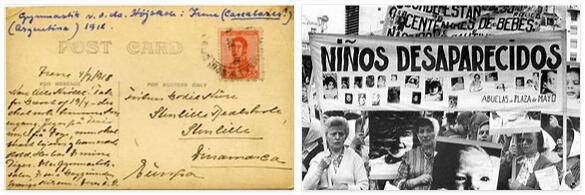The Pueyrredón, having considered his mandate fulfilled, resigned and the Congress appointed Rondeau as interim director. The civil war burned with greater violence: the rebels, waving the federal flag, organized a real army, which threatened the capital; the Congress was dissolved; Buenos Aires, alone against the provinces, was appointed a provincial legislature of 12 deputies, which elected Manuel Sarratea governor of the province. The years from 1919 to 1921 mark the apex of anarchy: the democrats of the provinces, partisans of the federal idea, wage bitter war against the unitary liberals of Buenos Aires, accused of favoring the monarchical system. Impossible to enumerate, here, the infinite guerrillas, the succession of leaders, the infighting of the caudillos – among which was the future dictator Rosas – the rebellions and the declarations of autonomy of the provinces. Finally, in 1821, with the disappearance of the most dangerous caudillos, Artigas, Ramírez, Carrera, the unitary party of the capital can mark its triumph, and a frankly liberal period begins, which can be called “Rivadavia”, from the name of the man who better represented and defended him. Returning from Europe, where he had fulfilled diplomatic missions and was imbued with the political theories of B. Constant and Royer-Collard and the economic theories of Bentham and Stuart Mill, Rivadavia was appointed secretary for the interior and for the foreign government of Rodríguez (1821-24). During this period he carried out a prodigious and enlightened activity: the laws on habeas corpus and on the freedom of the press, already meditated by him in 1811; the generous Ley de olvido (Law of oblivion), which allowed all political exiles to return; and the famous ecclesiastical reform, which triumphed through very strong oppositions, and which allowed freedom of conscience, abolished man-deaths, secularized monastic orders and cemeteries, suppressed the personal fori of the clergy and tithes. The other secretary, Manuel J. García, also a veteran of Europe, put in charge of finances, reorganized the tax system, favored the development of trade, promoted European emigration; and General Cruz initiated the reform of the army and navy.
According to health-beauty-guides.com, in May 1924 Rodríguez was succeeded by General Las Heras; but Rivadavia refused to continue in his post; it was theirs, but García and Cruz who developed their respective work of economic recovery and reform of the army. A new Constituent Assembly, in ’25, approved a “fundamental law”, which established “the provinces are governed by their own institutions”; but the unitarians, on the occasion of the events in Uruguay (v.), which had demonstrated the error of that law, carried out a parliamentary revolution, whereby the Congress, unconstitutionally, deposed Las Heras, abolished the provincial regime and elected president the Rivadavia. In the meantime, we were at war with the Brazilians, on whom Alvear reported the magnificent victory of Ituzaingó (February 20, 1827); caudillos offended and irritated by the suppression of the autonomies granted by the law of ’25. Among them, among the Bustos, the Reinafé, the López, who ruled over Entre Ríos, Santa Fe and Córdoba, Facundo Quiroga emerged, for his indomitable courage and unbridled ambition, a characteristic exponent of those turbulent gauchos from which he also emerges Rosas, cruel, violent, but in good faith, who will then end up murdered. Provincial congresses are being held in the interior against the presidential regime in Buenos Aires. The federalist recovery wins the game; Rivadavia’s constitutional work has failed; the president must resign in 1827. We return to the positions of ’15.
Dissolved the presidential government, the federalist Colonel Dorrego, in agreement with the caudillos provincial, he was elected governor of Buenos Aires. He negotiated and concluded (August 27, 1828) the peace with Brazil, from which the independence of Uruguay emerged. The unitarians’ rancor flared up and on 1 December ’28 the army deposed Dorrego and replaced him with his chief general Lavalle, who, delegated to power by Admiral Brown – who had distinguished himself in the naval campaign against Brazil -, moved on Dorrego, who had retreated inland, joining with Rosas, and who was defeated, imprisoned and shot. The success of the unitarians was short-lived: the federalists beat Lavalle at the Marquez Bridge and Rosas entered Buenos Aires, while the other unitary general, José María Paz, concentrated his forces in Córdoba, having also joined the unitary party in the provinces of Tucumán and Skip. But the key to the situation was always Buenos Aires, where Rosas, having made to depose General Viamonte, who had succeeded Lavalle, was appointed governor and captain general on 6 December 1829. What could be expected happened: the federalist Rosas, legally seizing power, aimed only at dominating the provinces: he became more united than his enemies. During the subsequent dictatorship he will continue to call himself a federalist and to define his adversaries as “savage, unclean unitarians”; but in reality he will be the most ferocious centralizer in Argentine history, the most ardent advocate of the sovereignty of Buenos Aires over the province.
